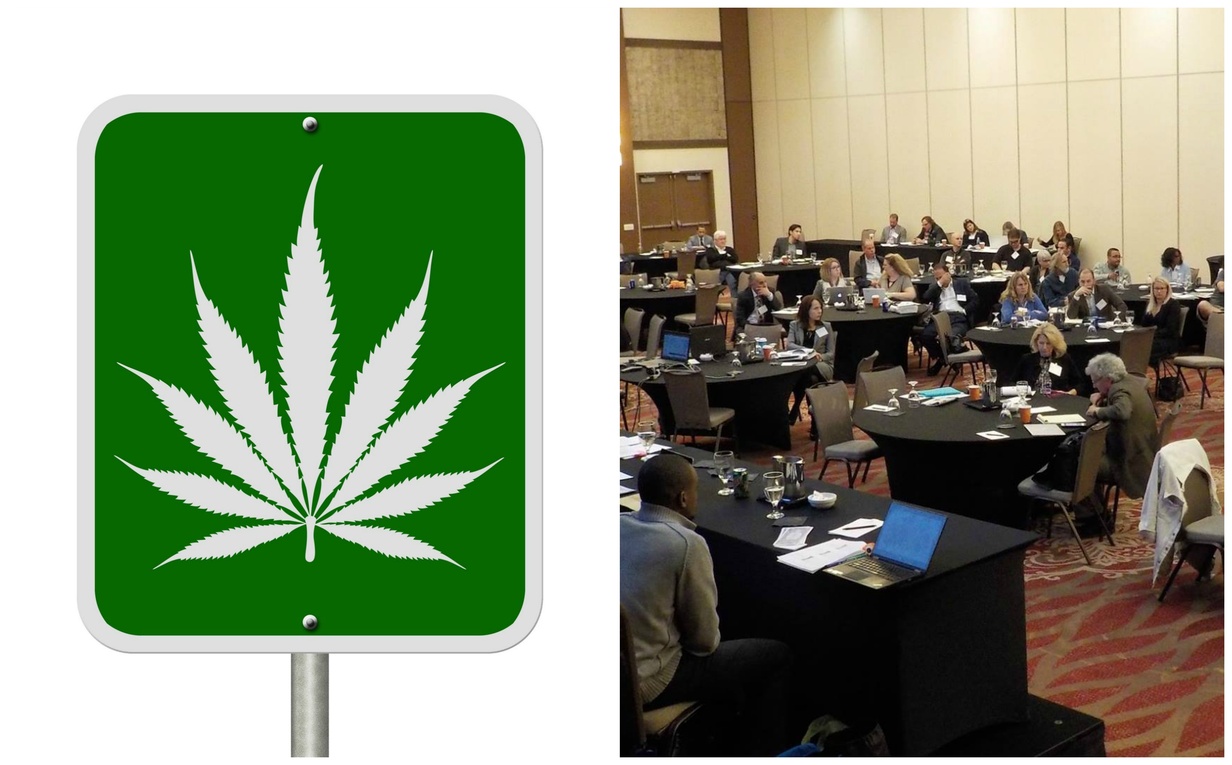
Marijuana Law Experts Gather In Traverse City
By Patrick Sullivan | Oct. 25, 2018
Uncertainty will be in the air when attorneys from across the state converge in northern Michigan this week to attend a three-day conference of the State Bar of Michigan’s Marijuana Law Section at the Grand Traverse Resort.
It’s thought likely – though not a certainty – that state voters will approve a ballot measure to legalize recreational marijuana on November 6, which will mean big changes for this group of lawyers.
Roberta King of Canna Communication, a Grand Rapids public relations firm that specializes in the marijuana industry, says the marijuana-focused lawyers have been having their annual meeting in Traverse City for years, noting "It’s just an appealing place for lawyers to go in the fall."
This year, with the looming vote over Proposal 1, which the Marijuana Law Section endorsed, it’s fitting that this group would get together just days before the election.
“They’re going to be gathering right before a historic vote by the people in the state of Michigan,” she says. “You know, it’s pretty much going to change everything.”
The Traverse City event, "Marijuana Law Section: The Changing World of Michigan Marijuana Law–CBD, Hemp, & Recreational Use," will include speakers from around the country, including Paul Armentano, author and deputy director of National Organization for the Reform of Marijuana Laws; Andrew Brisbo of the Michigan Department of Licensing and Regulatory Affairs; and Michigan Bureau of Medical Marihuana Regulation Chair Rick Johnson, as well as “expert voices" from Colorado and Oregon about marijuana laws, banking, business and licensing.
What can Michigan residents expect to see if marijuana is legalized?
Not much, at least for well over a year, according to Robert Hendricks, a Grand Rapids attorney who is chair of the Marijuana Law Section. It would probably take at least 18 months for the first recreational marijuana businesses to open.
“There’s about a 13-month phase-in to just get to the point where applications for licenses to be submitted,” he says.
Once up and running, legalization would grow the marijuana marketplace by orders of magnitude, however.
There are roughly 300,000 medical marijuana users in the state right now; Hendricks says most polling indicates that 12 to 15 percent of adults would use marijuana with some regularity if it were legal, meaning recreational marijuana would have around 1.2 to 1.5 million users in the state.
Hendricks says he doesn’t know what the legal marijuana marketplace would look like. It’s likely going to look somewhat like the just-now emerging medical marijuana dispensary system that’s soon to go into effect.
If recreational marijuana passes, there will likely be some bumps in its implementation, just as there have been with the administration of the medical marijuana law, which has seen law enforcement agencies crack down on marijuana businesses in some parts of the state.
“We’re transforming a very robust, but illegal, market into a lawful, licensed regulated and taxed market,” Hendricks says. “There will be some reticence on the part of law enforcement.”
He predicts that once marijuana is legal, the worst predictions – rampant teenage addiction; spikes in horrendous car crashes – won’t occur and people will realize it’s not that big of a deal.
“We’re going to start seeing that the sky hasn’t fallen and it’s okay, it’s just going to take time,” he says.
Not everyone agrees; in the past week, a group of sheriffs and a group of prosecutors, each with large northern Michigan contingents, released statements urging voters to vote against recreational marijuana. They warn that legal marijuana will mean an increase in crime, fatal car wrecks and teenage drug use.
Comment






